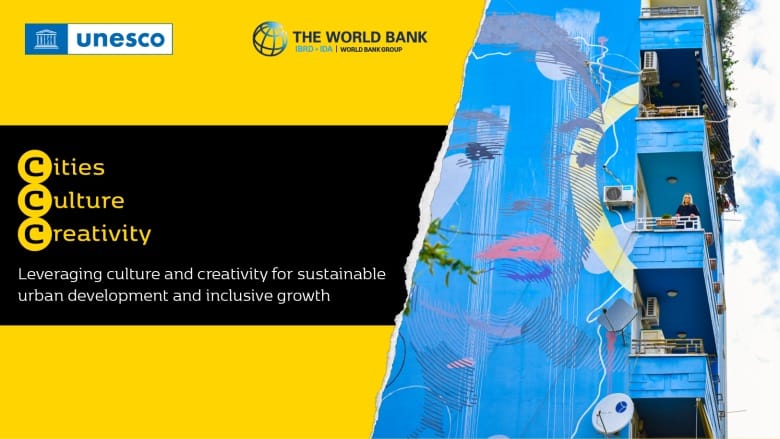-
The creative economy is one of the fastest-growing sectors of the world economy
-
Cultural, creative industries contribute annual global revenues of $2,250 billion
UNESCO and the World Bank have for the first time launched a joint initiative to enable the cultural and creative industries in cities as part of their recovery and development during and after the COVID-19 pandemic.
In their position paper published on 21 May, UNESCO and the World Bank present the Cities, Culture, and Creativity Framework for action for cities to be more creative by enabling sustainable ecosystems in which cultural and creative industries can attain their full potential to contribute to economic growth, urban vibrancy, social inclusion and innovation.
Cultural and creative industries contribute annual global revenues of US$2,250 billion and exports of over US$250 billion, and they provide nearly 30 million jobs worldwide, employing more people aged 15−29 than any other sector. This makes creative economy one of the fastest-growing sectors of the world economy. It generates income, creates jobs and brings in export revenue.
At a time when the culture sector has been devastated globally by the COVID-19 crisis, the cultural and creative industries have an untapped potential to help the world’s cities recover and gain resilience.
Cities, Culture, and Creativity draws on global studies and lessons learnt from nine different cities in all regions, from Brazzaville to Madaba to Seoul, which have collaborated with the World Bank and UNESCO, and have harnessed their creativity, achieving positive socio-economic outcomes. It highlights integrated policies and interventions in six areas that can enable the emergence of creative cities: urban infrastructure and livability, skills and innovation, networks and financial support, inclusive institutions and regulations, uniqueness and the digital environment.
Guiding principles and recommendations are provided, offering concrete examples of short and long-term policies, programmes, and investments that cities can put in place to help them recover from the ongoing pandemic and its toll on economies by creating a lasting, enabling environment for the cultural and creative industries to thrive in.
The framework is expected to be implemented through a series of joint UNESCO-World Bank pilot projects in different regions of the world. Cities, Culture, and Creativity was launched at the 21 May high-level event on Culture and Sustainable Development organized by the President of the United Nations General Assembly in partnership with UNESCO.








